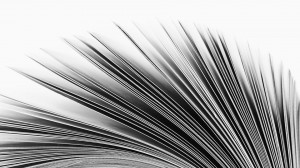Jahrbuch für Historische Bildungsforschung, Vol. 20 (2014) (Yearbook for History of Education)
(1) Topic: Machines and Mechanization in the History of Education: Devices, Myths, and Processes
Edited by Christian Kassung and Marcelo Caruso
Machines have a life of their own: They have power units, and they are
programmed to perform certain tasks. The more autonomously they act, the more radically they question the line between nature and culture.
This is why they are so ambivalent: both fascinating and disturbing.
The fascination of machines is closely connected to their growing
sophistication and the extension and transformation of their
applications. At the same time, however, this also poses a threat to
human autonomy, for the existence of machines always defines man in
technical terms as well.
When Wolfgang Hochheimer, a Professor at the now dissolved Berlin
teachers college, argued for the extensive use of teaching machines in
the 1960s, he referred to a colleague who contended that those
machines helped to achieve democracy, which was one of the central
ends of education at that time, much better than in the past.
Moreover, Hochheimer argued that teaching machines were
“consistently patient” and “consistently open” towards everybody
– from “highly educated” to “underdeveloped” individuals
(W. Hochheimer, “Erziehung durch Maschinen?”, in: Der Spiegel
30/1963, 24 July 1963). In the context of unconditional
democratization during the post--WW II era, the promise and the
threat of machines culminated in the fallibility of the teacher:
“Every teacher who can be replaced by a machine deserves to be
replaced,” Ken Komoski argued (“Lehrautomaten. Der Tod des
Paukers”, in: Der Spiegel 29/1961, 12 July 1961). Back then, Komoski
was a machine programmer from the circle around Burrhus
Frederic Skinner. He later became a professor at Columbia
University and a UNESCO consultant. Since 1967, he has been running
the Educational Products Information Exchange, substantially
supported by private foundations. In the heat of these post--war
debates one often forgot or ignored the fact that machines of various
kinds had been used for conveying knowledge already since antiquity
and that, more broadly, they had already always been used as
“extensions of man.”
As machines have increasingly been permeating modern societies, it is
hardly possible anymore to draw a clear line between technology and
nature. At the same time, in the course of the
institutionalization of modern education, a growing aversion
against the world of machines and mechanization has been
taking roots. Machines are soulless, the argument goes, when it comes
to pedagogic relationships, for real education begins
where unpedagogical drill always ends: with man. However, in
the 21st century, “man” as such possibly does
not exist anymore: Current communicative environments and the
proliferation of “artificial life” – cf. the socializing
effects of tamagotchis or Japanese nursing homes replacing
human beings with robots – have intensified the question of the
place of machines in education and socialization.
The Jahrbuch für Historische Bildungsforschung dedicates its 20th
volume to machines and mechanization in the
history of education. This concerns, on the one hand, “interfaces” of
human beings and increasingly complex networks of machines, objects
and media. On the other hand, it also concerns education towards
machine-- adapted values and representations or socialization
“for a life in the context of technical constructing and
organizing” (von Hermann & Velminski, Maschinentheorien /
Theoriemaschinen. Frankfurt am Main, 2012, p.
12). Against this backdrop, articles may tackle not only questions of
how to teach the artes mechanicae as well as the evolution of these
teaching modes. Rather, drawing on analyses of machines and
machine--inspired ways of thinking, they may also problematize the
implicit knowledge of things, concepts of social transformation,
pedagogic semantics, agency in educational processes as well as the
historical materiality of individual devices.
Deadline for proposals: 31 August 2013
Notification of acceptance / rejection of proposals by 30 September
2013 Deadline for articles: 15 March 2014
Please e--mail your proposal to Prof. Dr. Marcelo Caruso,
Humboldt--Universität zu Berlin: marcelo.caruso@hu--
berlin.de.
(2) General contributions: For this section, colleagues are encouraged
to submit articles on any historical topic related to education.
Articles dealing with the time prior to the 18th century are
particularly welcome.
Please e--mail your proposal for the section General
Contributions to Prof. Dr. Ulrich Wiegmann, Deutsches
Institut für Internationale Pädagogische Forschung, Berlin: u.wiegmann@imail.de.
________________________________________
H-EDUCATION
History of Education Discussion Network
E-Mail: h-education@h-net.msu.edu
WWW: http://www.h-net.org/~educ
________________________________________
